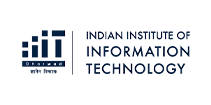DBA in India & Abroad: Top Careers, Salaries & Best Universities
If you've already reached the upper levels of the professional ranks or completed your MBA and are asking, "What’s Next?" A Doctor of Business Administration (DBA) may be an option for you. A DBA is becoming the academic choice for higher-level professionals who want to sharpen their strategic thinking skills, expand their leadership presence, or contribute to the business field through research, which is more practice-oriented than academic-focused research.Unlike traditional research doctorates, like the Ph.D., the DBA program is intended for professional executives to connect theory to practice. This highly regarded educational experience can help you gain more understanding, support candidacy for a C-suite role, provide insight into conducting business consulting for large-impact businesses, and contribute as a faculty adjunct to higher education and business education.
In this blog, we will discuss everything: what a DBA program is, what the career opportunities are, salary expectancy, Universities, and the opportunity to evaluate whether this program works for you.
What is a DBA Program?
A Doctor of Business Administration (DBA) is a professional doctoral degree designed for experienced business professionals who want to enhance their careers through advanced study and research. Unlike a more traditional PhD, which emphasises theory and academic contribution, a DBA emphasises the practical application of research to business issues.DBA programs tend to take about 3 to 5 years to complete and often consider working professionals in their structure. Students participate in rigorous coursework followed by a dissertation or an applied research project, which engages with a complex business or management problem.
A significant benefit of a DBA is the flexibility of the program. Leading universities offer online, hybrid, or part-time opportunities to make it easier for executives and entrepreneurs to pursue the program while continuing their careers. Whether you want to elevate to senior leadership, transition to academia, or run your own enterprise with a high-level strategic perspective, the DBA is a powerful tool for transformation.
DBA vs PhD vs MBA: What’s the Difference?

DBA vs PhD
The main distinction between a DBA and a PhD is their purpose and application. A PhD, which is an academic doctorate, has its primary objective as contributing new theoretical knowledge to a field. It is primarily a research doctorate, so it is very research-intensive and is designed for people who want to be academics, researchers, or scholars. The emphasis is on developing new theories, publishing in academic journals, and improving the intellectual landscape of a field.A DBA is a professional doctorate and is aimed at senior professionals who want to apply advanced research to solve real-world problems in business. While it includes a dissertation, research in a DBA is practical and applies to an organization's strategy, leadership, or innovation. The DBA candidates often stay engaged in their careers while participating in the program, and they are often looking at roles in firms that are consultants, business leaders, or executive educators.
To sum up, it can be understood that a PhD is Academic research for contribution to scholarship, whereas, on the other hand, a DBA is Applied research for contribution to business.
DBA vs MBA
Although both DBAs and MBAs target business professionals, they operate with various career aspirations and learning styles. An MBA, or Master of Business Administration, is structured to provide a higher level of business administration. This program will primarily concentrate on practical skills and technical-based strategies such as finance, marketing, operations, and leadership. The program is highly interactive, using case studies and group work to help prepare graduates for these management roles and decisions in everyday business.A DBA, or Doctor of Business Administration, is a professional doctorate that allows professionals to engage and influence business innovation through conducting advanced applied research. DBA programs explore and examine research grounded in thought, with an emphasis on preparing advanced business practitioners to contribute to strategic insight, transformational change, and thought leadership. DBA candidates typically work in their profession while researching to address complex business issues with long-term contributions and impact.
In short, an MBA focuses on practical business management & operational strategy, while a DBA emphasises advanced applied research for strategic business management transformation.
Top Career Paths After DBA
A Doctor of Business Administration (DBA) offers a variety of senior-level career possibilities by merging an academic perspective with practical know-how. You may apply your DBA to management, consulting or as an academic mediator to connect the classroom and the business world, the DBA will enhance your career trajectory. Compared to an MBA, a DBA not only opens doors to more advanced leadership roles but also offers greater long-term earning potential due to its specialised and research-driven focus. Here are a few of the most common DBA positions:
1. C-level roles (CEO, COO, CFO, and so forth):
DBA graduates tend to provide strategic thought and advanced leadership competencies that could enhance the role of high-level executives in any industry.
2. Business consultant or strategist:
Many DBAs apply their dissertation rigour and abilities to improve organisations' outcomes, get into innovation or market penetration strategy.
3. Academic faculty or adjunct faculty:
The DBA creates a path to potential adjunct or academic faculty positions, particularly for mid-career professionals who share their expertise with the next cohort of leaders.
4. Corporate trainer or executive coach:
DBAs have competencies that gain access to leadership programming with senior and mid-level professionals.
5. Policy adviser or think tank analyst:
DBA graduates bring advanced research skills that may contribute to policy set within governmental organisations and NGOs covering collective development or economic and business development.
6. Entrepreneur or Startup Mentor:
With extensive experience in innovation, strategic management, and market operations, DBA graduates often either start business concerns or work with startups, particularly those that develop solutions to wicked or complex business problems.
Earning Potential After DBA: What Can You Expect?
A Doctor of Business Administration (DBA) degree can remarkably improve your earnings potential, especially if you are planning to work in executive positions, consulting, or academic leadership. The range of annual pay depends on region, experience, and industry demographics for post-education careers.
India:
➢Entry-Level DBA Graduates:
Professionals with 0-1 year of experience could expect something in the range of ₹2.9 lakh per annum. Although this is not staggering, bear in mind that DBA graduates are in consulting or faculty roles in an entry-level position, and salaries should scale shortly thereafter, again given demonstrable skill.➢Mid-Level DA Graduates (Years 5-9):
Salaries will rise to approximately ₹8.2 lakh annually with increasing experience and actual experience. Staff at this stage of career trajectory will typically pick additional strategy roles, senior management roles, or work onsite with clients as leading independent consultants.➢Senior-Level (Years 10-19):
Employers can expect to pay around ₹13.1 lakh simply based on actual experience for leading DBA professionals, with this salary considerably higher based on employment with leadership roles in multinational organizations or as nominees in organizations as subject matter experts.United States
➢Average Salary:
In the U.S., the average annual salary for a DBA graduate is approximately $100,700 (around INR 86,64,000), but this can vary depending on the specialisation, location, and type of work. This compensation is particularly appealing for individuals in executive leadership, strategy, or high-level consulting positions.➢Experienced Professionals:
Individuals with at least 10 years of experience in a DBA role can expect salaries from $80,000 to $125,000 per year. Types of roles include senior consultant, VP, dean of an academic institution, or senior analyst for a corporation or policy think tank.Europe
➢Average Salary Range:
DBA graduate salaries in selected countries in Europe, including the UK, Germany, and the Netherlands, can range from €65,000 to €110,000 per year, depending on their role in the industry. Western Europe holds advanced research qualifications in very high regard, especially concerning consulting, business innovation, and higher education roles.➢High-Paying Roles:
DBA salaries may increase within the upper end of the range for roles related to international business strategy, leadership on EU-funded projects, and research related to academic policy development, especially in multilingual environments and transnational contexts.Skills Developed During a DBA Program
A Doctor of Business Administration (DBA) program encompasses more than just understanding theoretical aspects, it is a process of building a potent mixture of practical and research skills that you will use as a senior leader in strategic responsibilities and innovation in business settings. The following are some of the core skills you will develop when you are in a DBA program:
1. Advanced Research & Analytical Thinking
Being in a DBA program will help you understand how to complete deeper, evidence-based research that can be used to address and resolve actual business problems. You will gain practical knowledge of research methodologies, data analysis, and using that data to inform decisions made during times of high stakes.
2. Strategic Leadership & Vision
You will develop the skills to think long-term while leading with strategy. You will have the tools to analyse and assess organisational environments while forecasting trends and developing sustainable growth plans aligned with the vision and strategic direction of the business.
3. Addressing Complex Business Problems
You will learn how to analyse and address complex issues, making use of a combination of academic insight and business instincts. Whether you are dealing with a significant crisis or are required to practice organisational change, your work will be completed through structured analysis.
4. Communication and Influence
DBA graduates advance to positions in which they will be accountable for conveying complex ideas to different audiences. The program sharpens your writing, presentation, and influence, which are all important when there are boardrooms, consulting arrangements, or even instruction involved.
5. Ethical and Responsible Leadership
Ethics and corporate responsibility are prevalent considerations in DBA programs. You will begin to develop an orientation towards leading ethically, making socially responsible decisions, and developing businesses that are profitable and principled.
6. Innovation and Change Management
As the world of business continues to transform rapidly, you will learn how to manage innovation, lead digital transformation, and manage change in complex and dynamic markets, all informed by a research-based strategic approach.
Best Universities Offering Online/Hybrid DBA Programs
Whether you are a professional or business executive looking to achieve a higher education goal, the flexibility and international exposure offered by an online or hybrid format of a Doctor of Business Administration (DBA) program can be ideal in this rapidly escalating world. Here are some excellent organisations with Online/Hybrid DBA programs:Top international universities with Online/Hybrid DBA programs:
1. Westcliff University (USA)
Westcliff University has a flexible online DBA program for executives and students. The program is focused on education theory and practice, leadership development, and applied research. The length of an Online DBA is 2.5 to 3 years to finish, depending on the number of classes taken and work responsibilities.
2. University of Liverpool (UK)
The University of Liverpool (UK) offers an online DBA program with a fully online format geared towards Senior Professionals. Areas of emphasis can include International Business Problems and Solutions, using applied research in and around international business problems and solutions.
3. Rushford Business School (Switzerland)
Rushford’s Online DBA is a research-based theory and practice format that may focus on specialised theory and practice such as Healthcare, Sustainability, or Finance. The fully online degree utilising Swiss educational models provides high standards and flexibility for learning around the globe.
4. Golden Gate University (USA)
Golden Gate University supports adult and professional learners. The Online DBA program brought Academic Theory to actual Business Theory with practice certificates for minors and emphasised transnational practices (cross-border) within global organisational contexts. The program currently has a DBA curriculum, including organisational behaviour theory and practice and program applied research projects.
5. Edgewood College (USA)
Edgewood provides a DBA program with a hybrid delivery mode, emphasising ethical leadership and sustainable practices for business. With online and periodic in-person components, it is a solid option for professionals wanting values-based leadership development alongside academic credentials.
DBA in India vs Abroad: Choosing What’s Right for You?
Many factors will affect whether you pursue your DBA in India or abroad, related to your career goals, your financial capability, your preferred mode of learning and exposure to the globe. Below is a side-by-side comparison to help you appreciate what is most important to your goals and choices:
DBA in India
- Affordable
- Institutional Capacity
- Hybrid & Flexible Delivery
- Local Context
DBA International
- International Perspective
- Higher Earning Potential
- Access and Support Resources
- Flexible Online Options
Ultimately, if you're seeking something affordable and with regional insights, India is the best option. However, if you have your sights set on global positions of higher management or earning a notable academic title, a DBA elsewhere is likely a better option.
Who Should Consider a DBA?
A Doctor of Business Administration (DBA) is not simply another academic degree, it is a potent tool for business leaders, strategists, or consultants who want to make lasting contributions to the world of business.
Who is the right fit for a DBA?
1. Mid to Senior-Level ProfessionalsIf you have spent many years in the corporate space and are seeking to transition into C-suite or strategic leadership positions, the DBA can provide value. DBAs are designed for practitioners who want to synthesise practitioners in applied academics.
2. Entrepreneurs and Business Owners
DBA programs equip entrepreneurs with advanced frameworks and research-informed strategies designed to improve their business's growth, scaling, or transformation. A DBA also helps in examining the dynamics of market trends and risk analysis, as well as consumer behaviour, on a more intellectual level.
3. Corporate Trainers and Leadership Coaches
If you work with training, coaching, or mentoring senior managers or professionals, obtaining the DBA will give you credibility in your practice. Access to a DBA degree will allow you to populate your workshops and consults with evidence-based insights.
4. Academic and Research Interests
A DBA is for an individual who wants to apply research directly to business concerns, while a PhD is considered more of theoretical academic research. A DBA works well to prepare for academic work and teaching, whereas a PhD is associated with research institutions where theoretical or academic research is performed and where teaching tends to be theory-based or case-based.
5. Global Business Consulting
If you already have or aspire to have a consulting practice, a DBA will turn your profile to engage the analytical and strategic frameworks. This helps to tackle complex client situations in firms across sectors and the world.
Benefits of Earning a DBA Degree
The pursuit of a Doctor of Business Administration (DBA) is not only about having the designation behind your name but also about giving you an edge in our complex, fast-moving business world. If you want to engage in leadership, academia, or consulting, here are some of the top valuable aspects of holding a DBA:1. Strategic Leadership Development
A DBA will prepare you with advanced strategic thinking skills to lead complex organisations, influence policy decisions, and foster sustainable growth. You will learn to manage large-scale decisions with methodological rigour and ethical clarity.
2. Career Benefits
Those who earn their DBA often begin to see opportunities for advancement into C-level positions, including CEO and CFO or even Chief Strategy Officer. There are also increased opportunities for positions in consulting, helping to shape decision-making policy, and working in global business development.
3. Applied Research Skills
A DBA provides applied research experience through instances of solving real-world business problems. While a PhD program may emphasise theoretical research, the process and outcomes of a DBA program focus on structured research. It allows you to provide applied solutions to improve processes or create efficiencies to improve profitability in your organisation or for your clients.
4. Opportunities for Research and Teaching
If you are interested in teaching or mentoring others, a DBA qualifies you to be a professor or academic leader in business schools all over the world. This is especially at business schools where practice and case-based teaching are valued above theory.
5. Credibility and Thought Leadership
The DBA strengthens your credibility. It allows you to be viewed as a thought leader to influence, not just within your organisation but also your industry through whitepapers, conferences, and publications.
6. Global Exposure and Networking
Many DBA programs are being offered in part-time, hybrid, or fully online formats that will connect you with a global cohort of professionals. You will have increased opportunities for international networking and will explore a range of cross-cultural business practices and trends.
Conclusion
Is a DBA a path worth pursuing? If you are an experienced professional looking for your next big step, then yes. A DBA is more than just a degree; it leverages your career, expands your credibility, and allows you to tackle business issues that you have wanted to address. If you are planning on leveraging your degree for a position in the boardroom, the classroom, or the consulting world, a DBA can open the doors that previously were not accessible.Most importantly, both virtual and hybrid degrees provide you with the opportunity to work, grow, and get a degree that speaks to your value while you continue with life and your career.
If you are prepared to take the next bold step in your life or career, then the DBA may be the next open opportunity you have been looking for. A DBA is not simply for increased learning - it provides the opportunity to lead differently.
Frequently Asked Questions (FAQs)
Q1. Is a DBA the same thing as a PhD?
Not quite. They are both doctoral-level programs; however, while a PhD is more theory-based and focused more on academic applications, a DBA is more practice-focused, based on professional studies and applications.
Q2. Can I complete a DBA while working full time?
Yes! Most DBA programs, especially those mentioned as online/hybrid programs, are suitable for working professionals. You can balance your education with your job due to the flexibility of the course schedules and the availability of classes on weekends and in the evenings.
Q3. How long does it take to finish a DBA program?
DBA programs can take anywhere from 3 to 5 years to finish. This depends on the institution, your pace, and whether you are attending full-time or part-time.
Q4. What type of eligibility does a DBA program have?
Typically, a DBA will require a master’s degree, such as an MBA or equivalent, and some work experience of around 5 years in a managerial/leadership function. Some institutions may also assess your research skills or require you to submit a proposal as part of the eligibility process.
Q5. Is a DBA valuable for academics?
Absolutely. Many DBA graduates go on to teach at business schools or lead the academic function in schools or universities, especially in academic institutions that value industry or practitioner experience and knowledge.
Q6. How much does a DBA cost in India and abroad?
In India, the costs for a DBA online or hybrid program will be between ₹4 to ₹12 lakhs, while the cost for an international DBA program will range from ₹15 to ₹40 lakhs, based on the university and format.
Trending Posts
-
Understanding NIRF Rankings: Significance, Impact, and Future Scope
-
Amity University’s Online MBA: Learn, Grow, and Succeed on Your Terms
-
Life After PhD: Salary Expectations, Career Moves & Next Steps
-
Confused About GPA to Percentage? Here’s How to Convert It!
-
A Guide on Dual Degrees: Benefits, How to Get, and Institutes Offering Dual Degrees
-
IMT CDL Ghaziabad: All You Need to Know About the Institute in 2025
-
7 Major Changes Introduced by UGC You Need to Know About
-
Top 5 Online Universities in India for Online MBA in Healthcare Management
-
Top IIMs in India 2025: Which One is Best for You?
-
Thinking About an MA? Here's Everything You Need to Know Before Enrolling
-
B.Sc. Explained: Courses, Specializations & Career Prospects
-
The 10 Toughest Exams in India: Only the Best Make It Through
-
Top 7 Online PG Courses in India
-
Annamalai University Distance Education: UG, PG, Diploma Courses & Admission 2025
-
How Much Do BCA Graduates Earn? Salary & Career Path Explained






























































